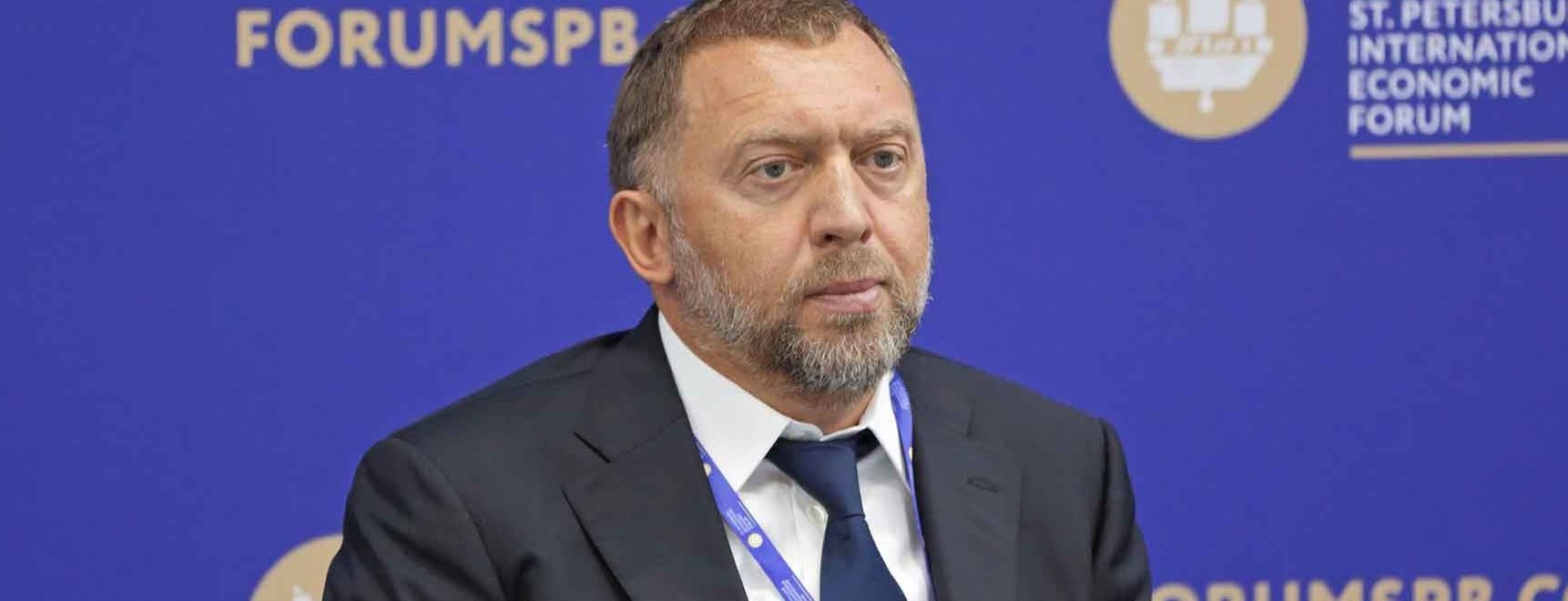The U.S. Treasury Department’s Office of Foreign Assets Control (OFAC) recently agreed to remove sanctions against Oleg Deripaska’s EN+ Group. As a corollary, it will also remove from the sanctions list Rusal, which is one of the world’s largest aluminum producers and is controlled by EN+. OFAC disclosed the terms of the agreement in a December 19 letter to Senator Mitch McConnell, as the Countering America’s Adversaries Through Sanctions Act grants Congress 30 days to reject its delisting decisions under the Russia sanctions program.
OFAC and Deripaska appear to have fought to something of a draw, one in which the Russian businessman takes a financial hit but avoids being fully dislodged from his company. He is still sanctioned in his personal capacity, however. The implication of this mixed outcome is that OFAC can sanction the world’s wealthiest people but is significantly constrained by the imperative of avoiding collateral economic damage. The question that Congress will now likely ask is whether this was in fact the best deal OFAC could get.
Terms and Conditions
Under the terms of removal that OFAC accepted, Deripaska will reduce his equity in EN+ from 70 percent to 45 percent. The 25 percent stake that he has agreed to relinquish will be split between an unnamed charitable foundation, which will presumably receive a modest sliver, the Russian state-owned VTB Bank, and, in a pre-planned swap for its Rusal shares, the Swiss commodities-trading and mining firm Glencore. OFAC did not disclose the exact allocation.
According to a November 2017 EN+ prospectus, which may not reflect current arrangements, the other 30 percent of the company’s equity is divided between the general public (10–15 percent), AnAn, a Chinese energy firm (about 6 percent), and Deripaska’s family (primarily the woman to whom he was married for many years and whom he reportedly divorced last year, and her father, who together own 10–12 percent).
Thus Deripaska and those with current or recent family links to him will apparently retain majority ownership of EN+. He will appoint only one third of the board of directors, and he will control only 35 percent of the company’s voting rights. Independent third parties will administer the voting rights of the remainder of his stake, as well as the rights of the family members’ stake and whatever new rights VTB has gained (the bank already owned, and will retain voting rights to, a 4 percent stake). Therefore, Glencore will probably own the second-most powerful bloc of voting rights after Deripaska’s, although its precise share is unknown.
The major shareholders made commitments to OFAC not to coordinate with Deripaska in an agreement that the agency believes will prevent him from exerting control over EN+. They also agreed to transparency and reporting conditions. Ironically, the new corporate structure actually increases EN+’s stake in Rusal to an outright majority, because it swaps Glencore’s Rusal shares for EN+ shares. According to a December 2017 Rusal prospectus, its second-largest shareholder is SUAL, another Russian aluminum company owned by Len Blavatnik and Viktor Vekselberg. The latter is also sanctioned, but Rusal would not automatically be subject to sanctions under OFAC’s 50 percent rule, as Deripaska and Vekselberg’s aggregate indirect ownership would be below this threshold.
The Worst Outcome Except All the Others?
One question is whether OFAC could have bargained harder and further minimized Deripaska’s role. That question is difficult to answer without more knowledge of the terms of removal, of the exact stakes held by VTB, Glencore, and the charitable foundation, and of the presence or absence of other prospective buyers. Whether or not he actually stands to benefit financially from the arrangement depends in large part on the fair market value of the EN+ shares granted to VTB – which were used to collateralize a $950 million loan from the bank – in comparison with the amount of the Deripaska’s debt that VTB will forgive. Likewise, OFAC and the parties have not disclosed the fair market value of Glencore’s Rusal shares in comparison with the value of the EN+ shares it would receive in exchange.
Had OFAC insisted that Deripaska and his family reduce their share in EN+ much more significantly, or exit entirely, there would be greater certainty that he will not have the ability to exercise control over it. That assumes two things, though: Deripaska’s willingness to part with the company and the existence of more appealing buyers willing to step in and partner with him. OFAC created leverage during the negotiations by limiting authorizations in licenses for activity by EN+ and Rusal that was subject to U.S. jurisdiction to a short-term basis, but it was engaged in a game of chicken with Deripaska. If he credibly threatened to walk away from negotiations and lose his entire stake, the U.S. government risked upsetting global aluminum markets and damaging the economies of Western countries where Rusal operates.
These potential economic consequences were likely of greater concern to OFAC than litigation risk. In theory, refusing Deripaska’s petition for removal could have led the billionaire to bring a well-funded lawsuit, but the facts and circumstances and the case law are favorable to the government. For a lawsuit to succeed, he would first have needed to convince Glencore to move forward with the share swap, which seems highly unlikely absent OFAC approval. Second, a judge would need to conclude that OFAC acted in an arbitrary and capricious manner in determining that Deripaska had failed to demonstrate that he had extinguished control over EN+, a tall order given his predominant equity stake, significant voting rights, and familial entanglements with other shareholders. As a fallback option, OFAC could have re-designated EN+ on the basis of it operating in Russia’s energy sector – as the largest private power producer in the country – rather than on the basis of ownership or control by Deripaska.
Avoiding More Rusals
The more important strategic question for the U.S. government is what it aims to achieve with Russia sanctions. The implied but unarticulated logic behind the April 2018 designations of Deripaska, Vekselberg, and Suleiman Kerimov, another Russian billionaire, is to apply political pressure on the Kremlin by imposing costs on politically influential businesspeople with exposure to Western markets. Under this theory, cracks in the patronage system in Russia will lead to policy change at the top. If this is the strategy, it will likely create more collateral economic damage in the future. To advance the strategy effectively, the U.S. government may need more creative tools to target some of the world’s wealthiest people, such as sanctions that prohibit new investment or the receipt of dividends or asset sale proceeds, without blocking property. A clear-eyed assessment of whether and how such a strategy could work is the most pressing matter of all.
The views expressed in GMF publications and commentary are the views of the author alone.





